Will steel town Port Talbot now have cleaner air?
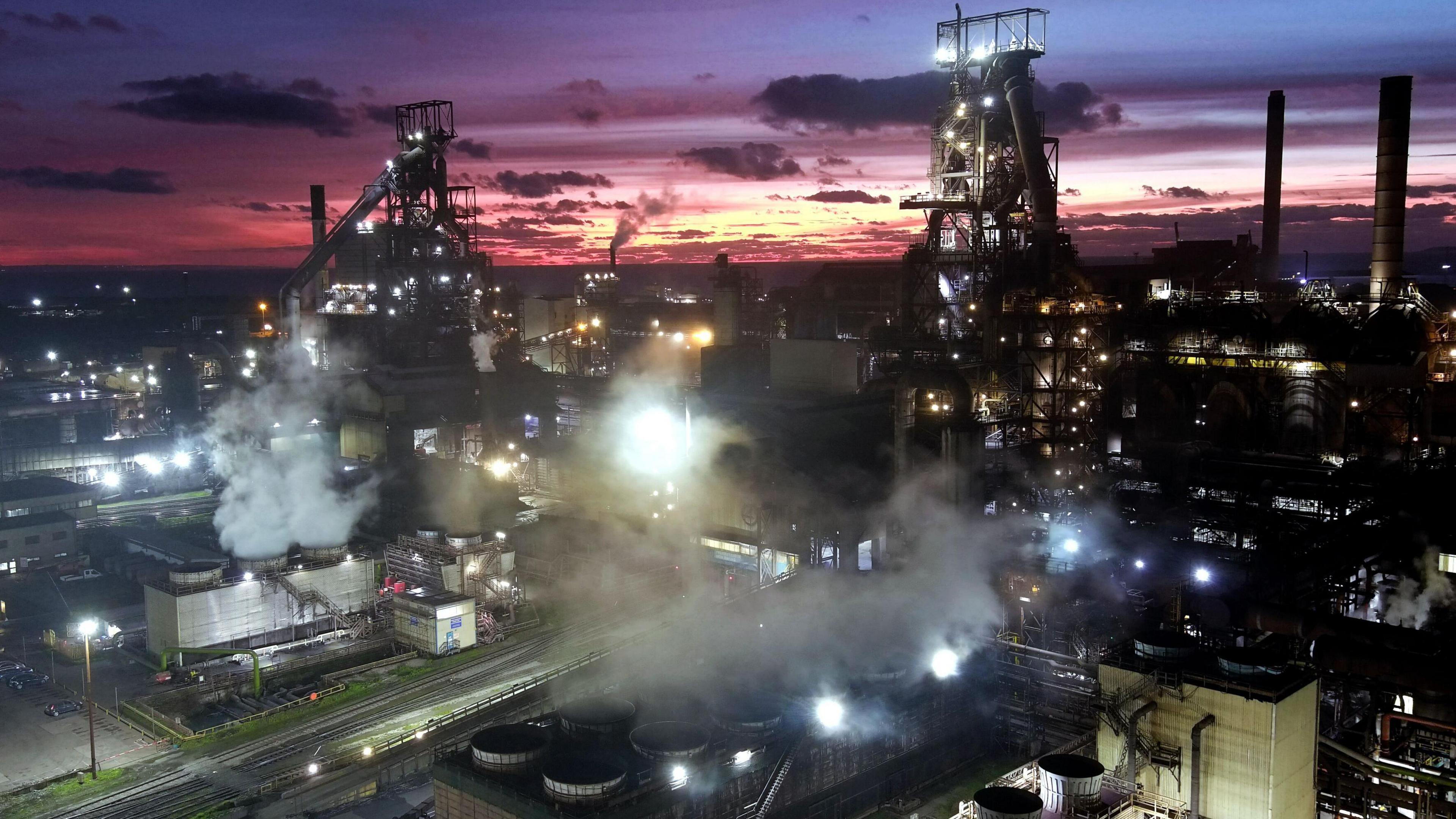
Tata is closing the heavy end of production at its Port Talbot steelworks, switching off its two blast furnaces
- Published
"They used to say people in the area shouldn't buy white dogs," Anna Phillips recalls with a smile.
The retired teacher has lived alongside the UK's largest steelworks in Port Talbot for the best part of 70 years.
"Very often they would turn pink with the fallout," she explains, adding that cars and windowsills would also be coated in dust.
Tata Steel said major changes to the site - including the closure of its blast furnaces - will have a "significant and positive impact" on the local environment.
Traditional steelmaking ends in Port Talbot
- Published30 September 2024
Capturing last days at Port Talbot's steelworks
- Published30 September 2024
The move away from making steel from scratch using iron ore and coal to recycling metal in a new £1.25bn electric arc furnace could lead to a "90% reduction in dust from the works' chimneys", Tata has claimed.
But for Port Talbot, the prospect of cleaner air comes at a cost - with around 2,000 jobs lost.

Anna Phillips often walks in Talbot Memorial Park, near the entrance to the steelworks, and says sometimes you can smell smoke in the air
Poor air quality has long been a concern for locals in a town with a concentration of heavy industries and through which the M4 motorway runs like a polluted river
The situation was unexpectedly highlighted in 2018 by the street artist Banksy.
His artwork on the side of a garage near the steelworks depicted ash from a fire falling on a child like snow.
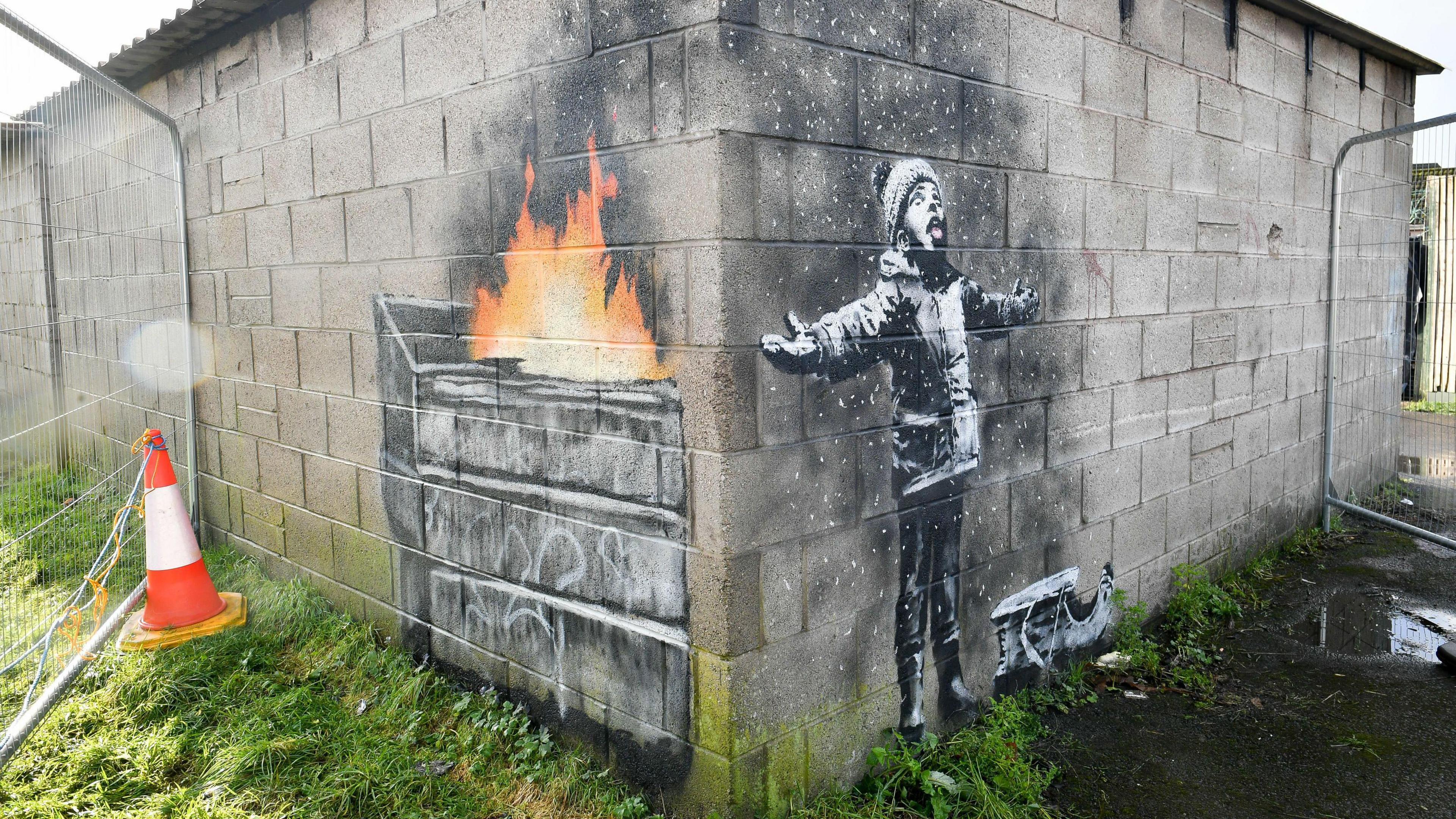
Banksy's artwork "Season's Greetings" appeared on a garage in Port Talbot in 2018
Former steelworker Gary Owen claims to have been the person who sparked the artist's interest, having messaged him on social media.
"I bought a trampoline for my daughter and when she played on it her feet were covered in black dust and I was really unhappy about it," he said.
He said he wrote to Banksy in the August of that year inviting him to Port Talbot, and "he appeared in the December".
Pointing to PVC cladding on homes nearby, he said: "If you look around, everywhere is orange, surely Tata should have been able to control the dust.
"Hopefully that will calm down a bit now and we can all breathe a bit better."

Gary Owen claims dust from the works causes local residents to "wake up with a sore throat"
Tata Steel said it has invested heavily "over many years" in reducing the works' impact on the local area, with recent schemes including "sinter plant bag filters, blast furnace fume extraction systems and coke oven hoods".
These parts of the steelworks are now closing. The site will also no longer have large stockpiles of dusty iron ore and coal.
Planning documents for the new electric arc furnace note that it will also generate dust, but that "this will be mitigated via an extraction canopy at the roof of the plant".
An assessment suggests ongoing impacts on air quality would be "minor", and there would be an "overall reduction in emissions" compared with the old way of working.
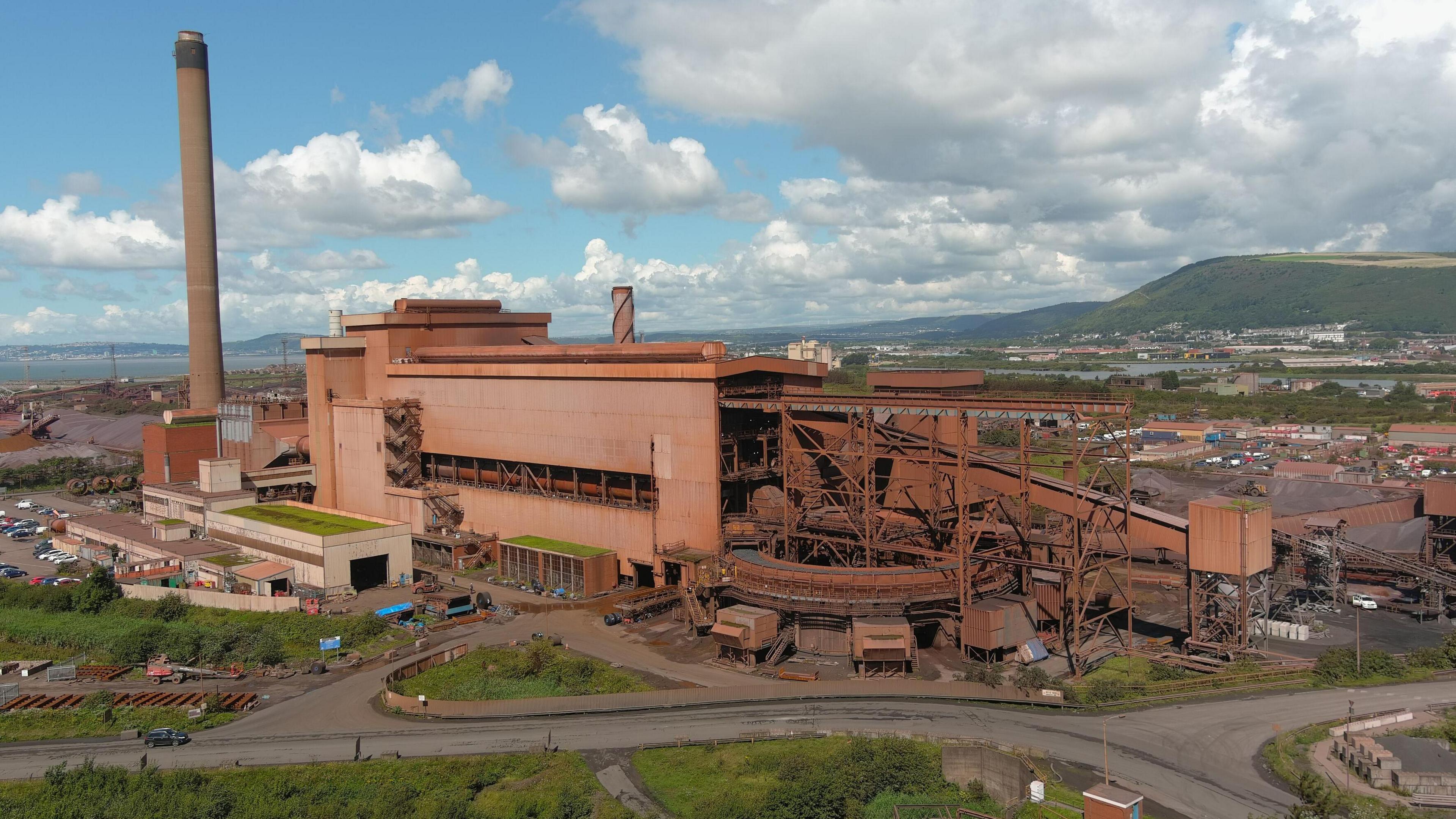
The sinter plant with its smoking chimney is also set to close
Since 2000, Port Talbot has been designated an Air Quality Management Area, external by the Welsh government due to high levels of air-borne particle pollution, referred to as PM10.
"These are really small particles which can get right into the upper part of the lungs," said Dr Ben Williams, senior research fellow at UWE Bristol's Air Quality Management Resource Centre.
While concentrations in the air are routinely measured and reported, identifying the source of the particles is more difficult, he added.
They can include emissions from industry, but cars generate them too from exhaust pipes, tyres and brakes, and then there are natural sources such as salts from beaches and the sea.
"While in the long run you would envisage that there should be some improvement as a result of the changes at the steelworks, it's a complex picture," Dr Williams said.
"It's really important that the measurements are still carried out and an eye is kept on air pollution in that area because ultimately this is about protecting human health."

Kathy Oakwood chairs the local branch of Friends of the Earth and says environmentalists have mixed feelings about what is happening at the steelworks
Kathy Oakwood chairs the local branch of Friends of the Earth in Neath Port Talbot, and said it was hard to feel pleased about the prospect of better air quality in the face of what she saw as a political failure to protect more jobs or provide green alternatives locally.
"This is about people's mental health too - their employment and status. Everyone really feels for people in this dreadful situation," she said.
It is a point raised by Anna Phillips and Gary Owen too.
"There are very mixed feelings in the community," Ms Phillips said.
"Clean air is positive but people need work."
Related topics
- Published21 November 2023
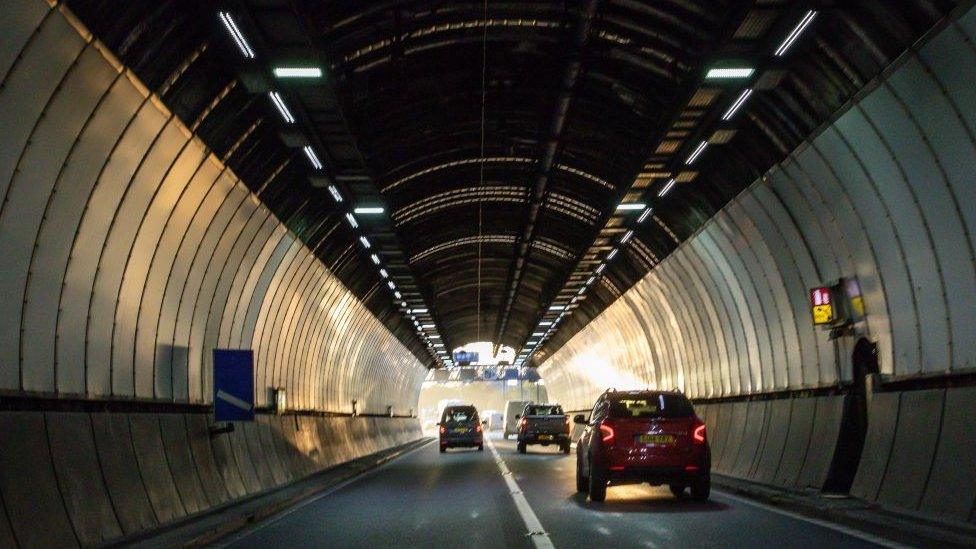
- Published23 September 2024
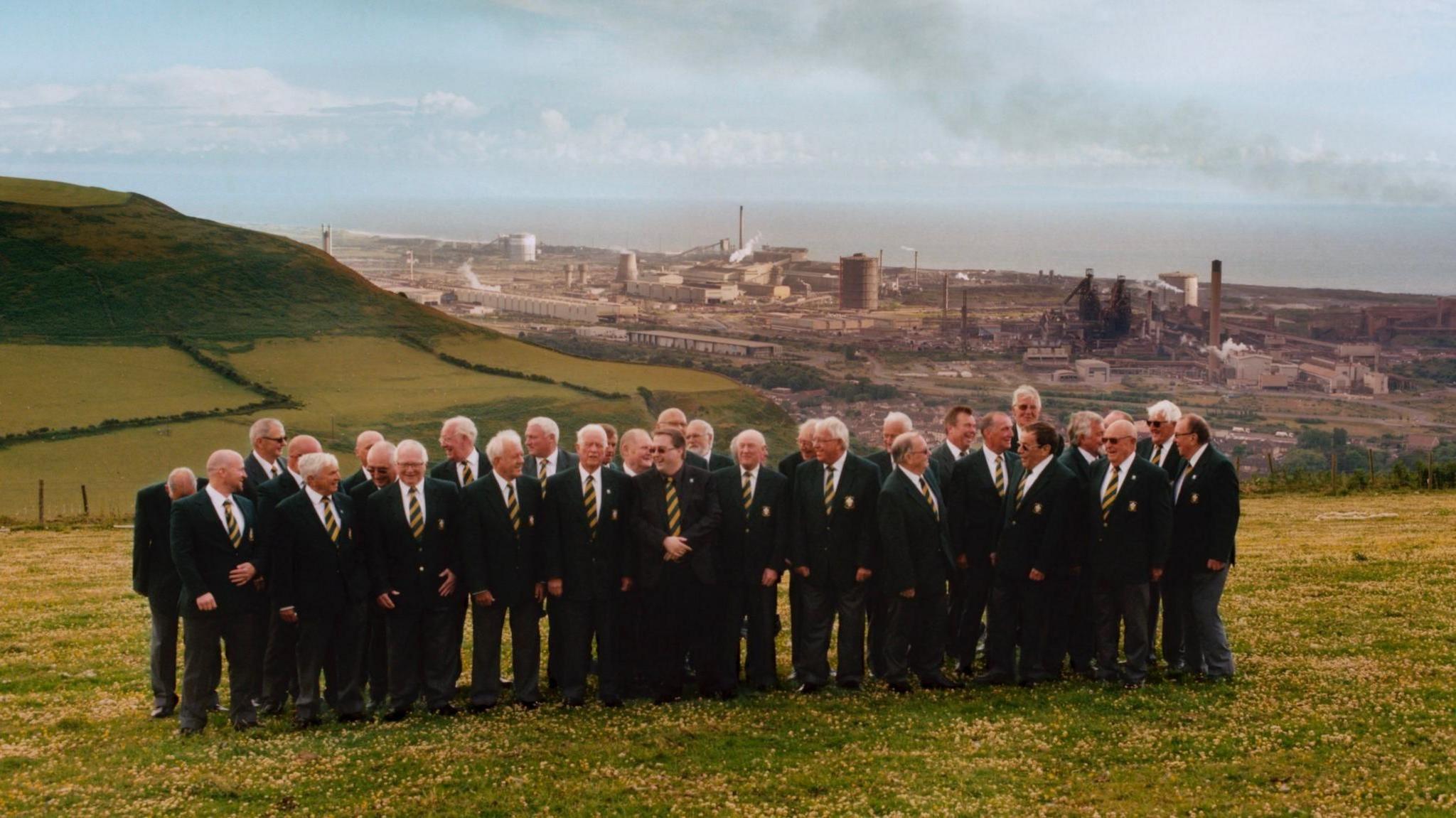
- Published31 August 2024
